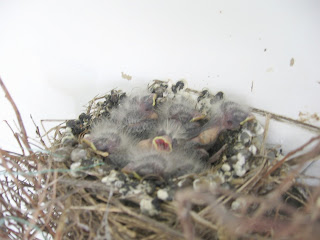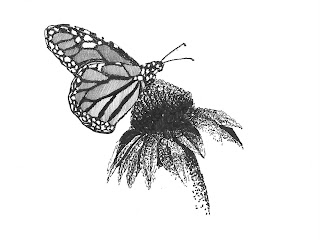Mockingbirds

We have the Northern Mockingbird (Mimus polyglottos) living among us and it is one of my favorite birds. For the past three years it was a single male. Never any babies. Well apparently this spring a lady mocker showed up and I’ve also seen other adult mockingbirds flitting about flashing their white wing bars. I wonder how many mockingbirds we can support here? Mockingbirds establish a breeding territory in the spring, different from a territory used in the fall and winter that is centered around a food source. My mockingbird’s food territory for the last three years has been our crabapple trees which usually retain their fruit well through the winter. Many mornings in late winter I could lay in bed and watch out the window as this single mockingbird valiantly defended his food source from small bands of Blue jays to crows. Mockingbirds also depend on Pokeweed, poison ivy, Virginia Creeper, and Hollies.
Some mockingbirds mate for life and remain together at all times, others separate in winter to establish their separate feeding territories.
Mockingbirds can incorporate from 50 to 200 sounds or calls in their repertoire, gaining more experience with age. While usually I appreciate and look forward to this serenade, out mockingbird has decided that night time is the right time for his particular repertoire and sings from 2 to 4 a.m. approximately 8 feet from our bedroom window. This has happened for the last several nights. This is not uncommon behavior for male mockingbirds, particularly unattached males in and around the full moon. Which doesn’t happen until tonight. Because I could not sleep I decided to see how many bits and pieces of bird call I could identify of his lineup. I could make out a robin, a chickadee, a cardinal, a blue jay, a flicker, a red tail hawk, and sadly, what sounded for all the world like a car alarm. I say hello to him every time he is around with the hopes that one day, my hello will make it into his song list.
Did you know that there was such a large market for caged mockingbirds in the late 18th and early 19th centuries that they were completely extirpated around large cities such as Philadelphia and St. Louis? I guess that is the era which the lullaby comes from, about buying a mockingbird and what would happen if it didn't sing.
Speaking of birds, I watched the documentary The Wild Parrots of Telegraph Hill last night. I loved it. Check it out if you can.


















